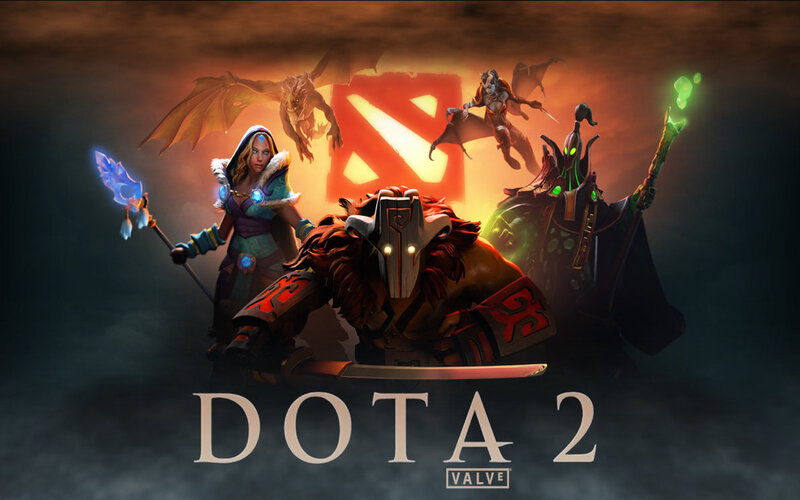
Diving into Dota 2 Global Appeal: The Importance of Localization
Dota 2, created by Valve Enterprise, stands as one of the foremost notorious titles within the multiplayer online battle arena (MOBA) game. Since its release in 2013, Dota 2 has garnered a massive player population all over the world, with millions of dedicated fans engaging in intense battles of technique and ability. One major factor contributing to Dota 2's global popularity is its meticulous game localization endeavors. Let's explore more deeply why localization is crucial for Dota 2's success and how it improves gaming involvement for players around the world.
Understanding Dota 2's Worldwide Wonder

Dota 2's ubiquity can be ascribed to a few key components. Firstly, its profound and complex gameplay mechanics offer perpetual vital conceivable outcomes, keeping players locked in and persistently learning. Furthermore, the game boasts an assorted list of heroes, each with one-of-a-kind capacities and playstyles, allowing for dynamic and exciting matches. Moreover, Valve's commitment to supporting the competitive scene through competitions just like. The International has made a difference in raising Dota 2 to esports fame, pulling in both players and spectators.
Wonderfulness of the Localization Winner
Game localization is indeed not an easy task, but it might be done effectively. Often, well-localized gaming content can be a stronger ambassador than any marketing campaign. Keep in mind that video games are not a pastime for nerds anymore. These days, games have become a billions-worth platform. With the subsequent explosion of esports' popularity, we're talking hundreds of billions and localization has contributed significantly to the growth of this industry. A large portion of this thriving business is situated in China, where both foreign and local games become hugely popular. A game developed by Valve Corporation named Dota 2 is an excellent example. The MOBA colossus is available in 25 languages (if you count privateer English), including simplified and traditional Chinese.
Read More: Exploring the Potential of the Gaming Industry: Trends, Opportunities and Challenges
As most Chinese players are not especially familiar with English, having a Chinese game localization not only popularized the title in China but also helped Chinese pro gamers shine on the Dota 2 esports stage. Some of the most skilled Dota 2 teams these days are Chinese, with PSG.LGD is one of them. This team claimed a moment at Valve's The International 2018 competition and won the galactic prize pool of $25 million.
But let's not center entirely on the monetary side of things. In terms of immaculate imaginative esteem, game localization has delivered some surprising results. There have been cases where localizers have gone over and beyond the call of duty, creating true showstoppers that are comparable to or even better than the first.
The Centrality of Localization
While the core gameplay of Dota 2 remains the same across regions, proper game localization is critical for ensuring that the game resonates with players from various linguistic and social backgrounds. Localization entails more than just translating content; it encompasses adjusting the game's content and interface, as well as promoting materials, to the preferences and sensitivities of spesific regions.
Localization in Activity
Valve gets the significance of game localization in cultivating a worldwide Dota 2 community. Here are a few key aspects of Dota 2's localization endeavors:
-
Language Interpretation:
The most obvious aspect of game localization is deciphering the game's text, dialogue, and UI components into various languages. This permits players from all over the world to enjoy the game and freely converse in their own languages
-
Social Adaptation
Dota 2 localization efforts to strengthen social adaptability are by ensuring that the game content can adapt to social values and standards in various regions. This may include modifying character designs, references, and in-game events to resonate with neighborhood gamers' expectations.
-
Territorial Occasions and Collaborations:
Valve organizes region-specific occasions and collaborations to lock in with local communities and advance Dota 2 in numerous markets. These occasions periodically highlight specific in-game rewards, competitions, and advancements tailored to the preferences of the target audience.
-
Community Feedback
Valve effectively solicits feedback from players all across the world to identify game localization difficulties and regions for modification. Valve can successfully solve phonetic and social intricacies by connecting with the community, hence improving the whole game experience for players.
The Effect of Localization on Dota 2's Success
The fastidious game localization endeavors embraced by Valve have played a critical part in Dota 2's global success. Valve has been able to build an active and engaged player base all around the world by providing a localized gaming experience that resonates with players from various backgrounds. This, in turn, has contributed to the game's longevity, production, and standing as a social marvel.
Looking Ahead
As Dota 2 proceeds to advance and grow its reach, localization will remain a basic viewpoint of Valve's methodology. By grasping socially differing qualities, locking in with neighborhood communities, and conveying custom-fit gaming encounters, Valve can guarantee that Dota 2 remains important and adored by players around the world for a long time to come.
In conclusion, the significance of game localization in Dota 2 cannot be exaggerated. Valve has created a truly global gaming wonder by tailoring the game to the etymological, sociological, and territorial preferences of its players. As Dota 2 proceeds to flourish within the ever-growing esports scene, its commitment to localization will without a doubt play a vital part in shaping its future success.
In substance, the worldwide offer of Dota 2 may be a testament to the control of compelling game localization within the gaming industry. Valve's commitment to providing a personalized gaming experience for gamers all over the world has contributed to Dota 2's success. Valve has created a truly global Dota 2 community that transcends geographical barriers by translating the game's content into several languages, adapting it to different societies, and connecting with surrounding communities.
Besides, Dota 2's success highlights the significance of understanding and social contrasts in gaming. By recognizing and joining territorial inclinations and sensibilities, Valve has created an amusement that feels comprehensive and inviting to players from all walks of life. This social affectability not only upgrades the gaming experience but also fosters a sense of belonging among the global community of Dota 2 fans.
As Dota 2 proceeds to advance and grow its reach, game localization will remain the foundation of Valve's approach. By remaining adjusted to the needs and preferences of players in totally different locales, Valve can guarantee that Dota 2 remains significant and locks in for a long time to come. Finally, Dota 2's global success offers a striking example of how excellent localization can elevate the popularity of a game from a minor piece to a cultural wonder with global impact. To encourage investigation of localization and other captivating aspects of the gaming world, keep taking after Digital Trans Asia. Your investigation into the vibrant universe of worldwide gaming is standing by.